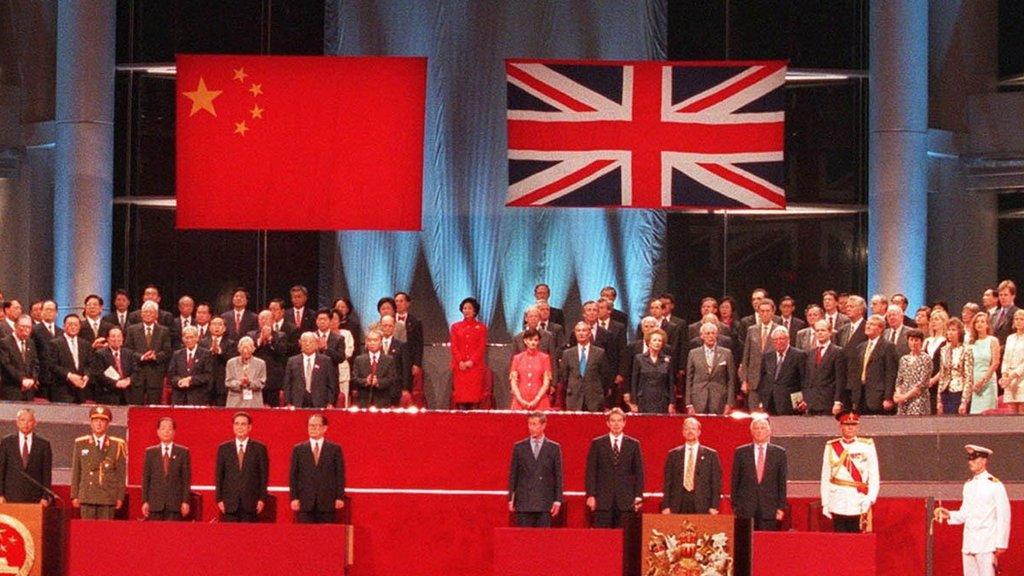China's Xi Jinping visits Hong Kong for handover anniversary
- Published
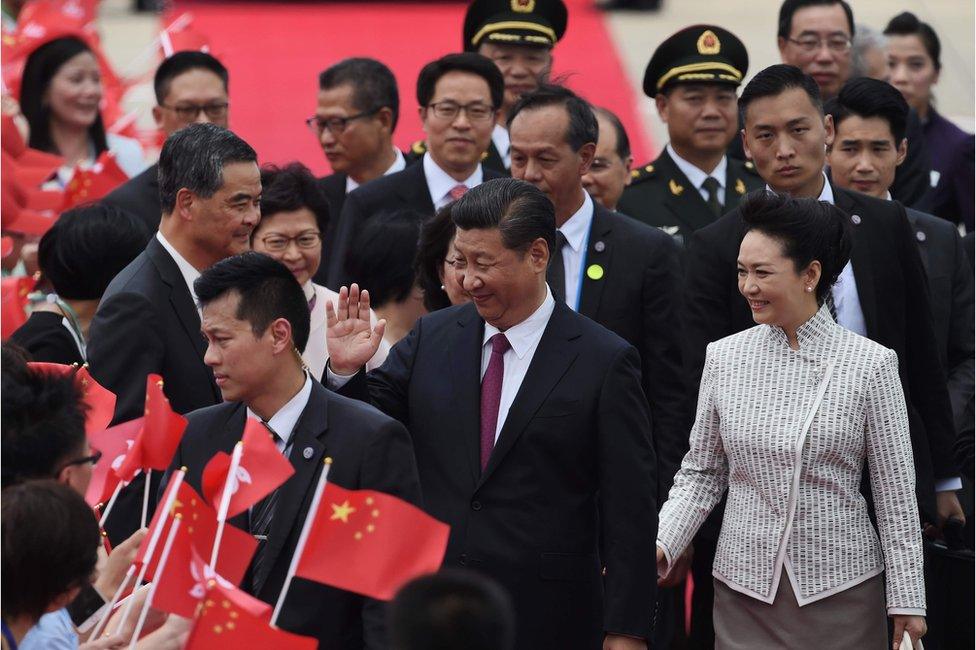
President Xi Jinping (centre) arrived at Hong Kong's main airport with his wife Peng Liyuan (right)
Chinese President Xi Jinping has arrived in Hong Kong to mark 20 years since the territory was handed back to China by Britain.
The highly symbolic visit, Mr Xi's first since becoming leader in 2012, comes amid an increasingly tense political climate.
Official celebrations are planned, as well as large protests from pro-democracy and pro-Beijing camps.
Several well-known activists were arrested on the eve of Mr Xi's arrival.
The group, which included student leader Joshua Wong, had staged a protest at an iconic sculpture symbolising the handover.
The golden sculpture of a bauhinia flower - Hong Kong's emblem - by the city's harbour was a gift from China.
Several high-profile democracy protesters were arrested on Wednesday
Mr Xi arrived for the three-day visit with his wife Peng Liyuan at the city's main Chek Lap Kok airport. The couple were welcomed by a marching band and children waving flags.
In a brief speech on the tarmac, he said Hong Kong was "always in my heart".
Beijing's central government "has always been a strong backer of Hong Kong" and "will, as always, support Hong Kong's economic development and improvement of people's lives".
He also said Beijing was "willing to work with all sectors of Hong Kong's society in maintaining Hong Kong's extraordinary journey these past 20 years", and would "ensure 'one country, two systems' will continue with stability".
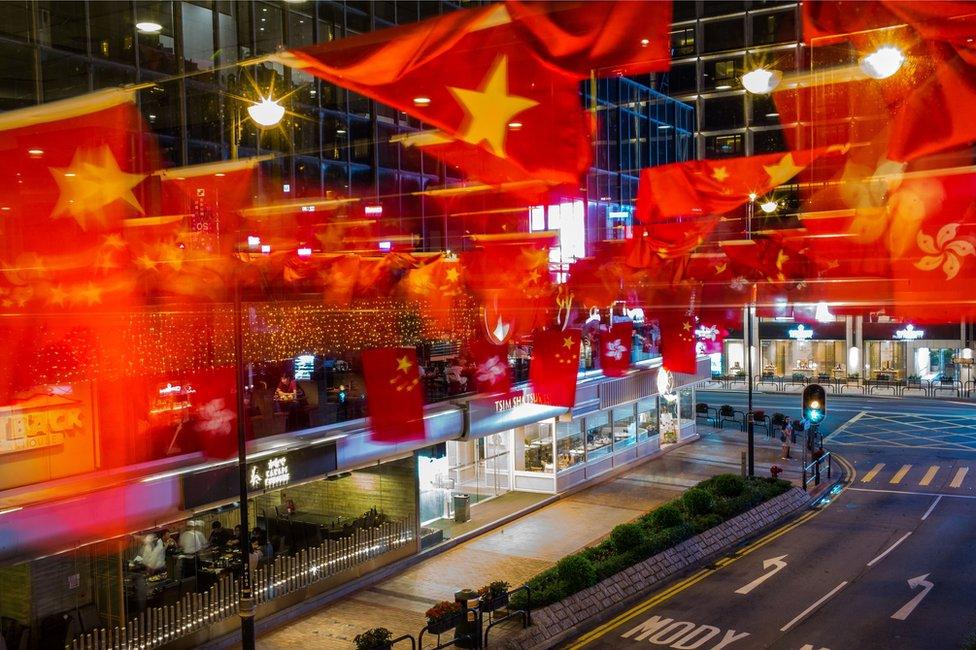
Some streets were decked out in Chinese and Hong Kong flags ahead of the celebrations
The city was handed back from British to Chinese rule in 1997.
Beijing agreed to govern it under "one country, two systems", granting the city its own legal system, limited democracy with multiple political parties, and rights like freedom of assembly and free speech.
But China's growing influence has been met with unease and concerns that the mainland could undermine Hong Kong's more politically liberal traditions.
Activists have been campaigning for years for Hong Kong to have more political freedom.

Read more about Hong Kong since the handover:

A series of official celebrations are planned for this weekend, as well as the inauguration of Hong Kong's incoming chief executive Carrie Lam.
But parts of Hong Kong are under a tight security lockdown amid worries of further protests, with several major roads closed and sections of the city centre blocked off from the public.
Thousands of police officers are being deployed across the city and along the route Mr Xi's motorcade will take when it enters the city.

Xi Jinping in Hong Kong
Thursday 29 June: Arrives, attends dinner with outgoing Chief Executive CY Leung
Friday 30 June: Expected to visit local garrison of China's military, followed by evening gala
Saturday 1 July: Oversees swearing in of new Chief Executive Carrie Lam, departs; annual Hong Kong pro-democracy protest to take place

When former president Hu Jintao visited for the 15-year celebrations in 2012, he was met with hundreds of thousands of protesters, marching against what they saw as Beijing's stifling influence on political reform in the city.
Tensions spilled over into mass protests in the city centre in September 2014, with calls for full democracy and the resignation of then-Chief Executive CY Leung.
- Published1 July 2022
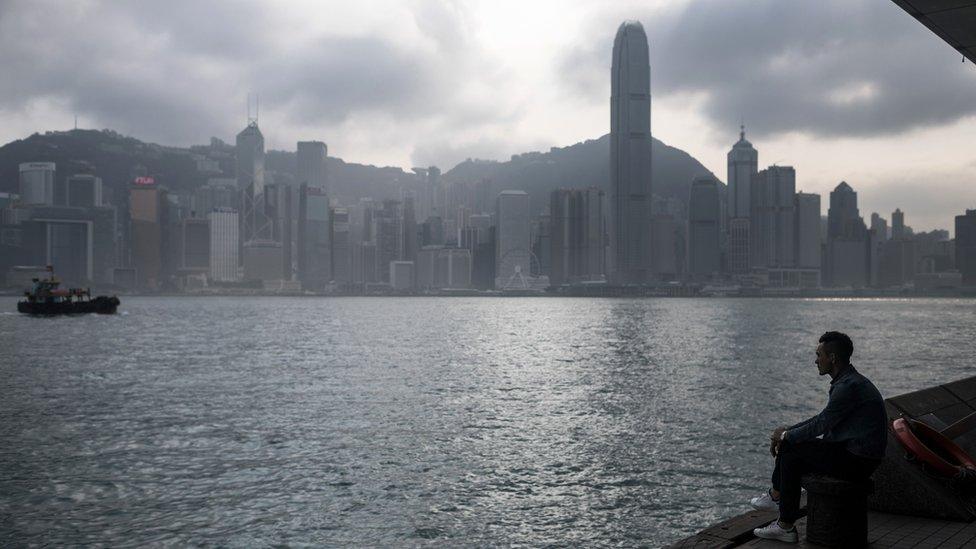
- Published26 June 2017
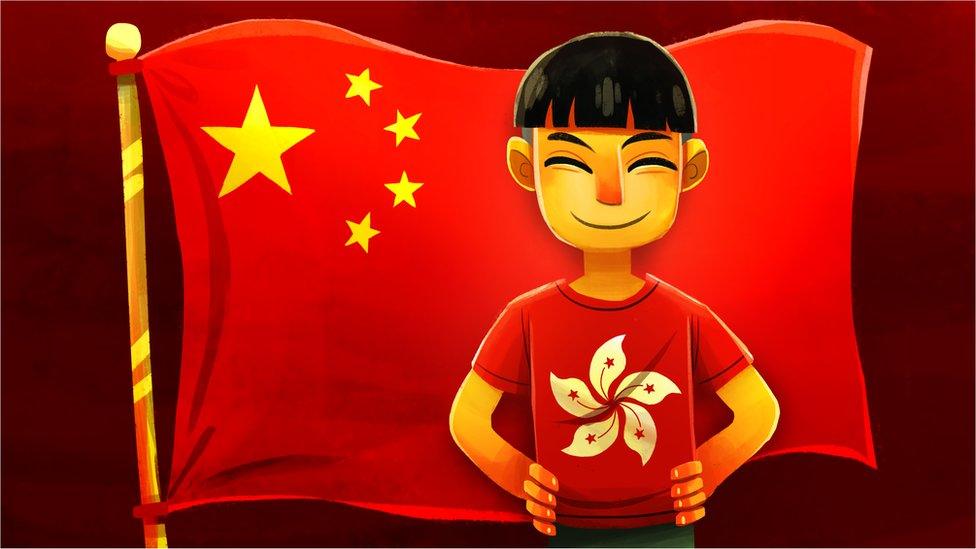
- Published29 June 2017
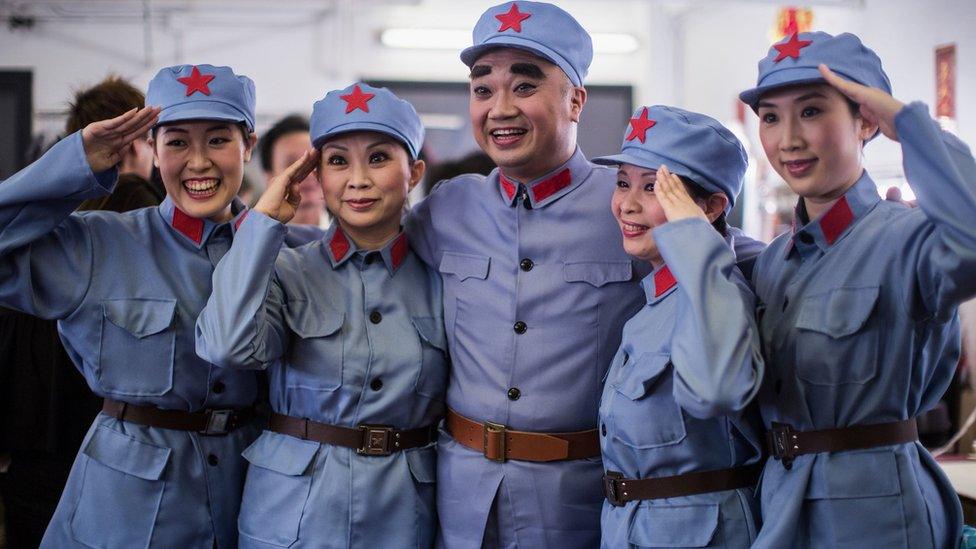
- Published21 June 2017
- Published29 October 2016
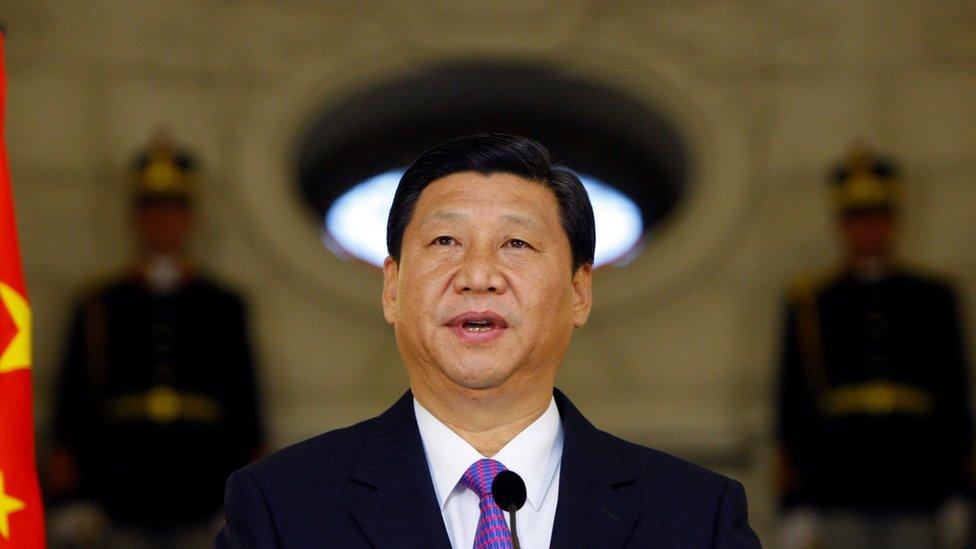
- Published24 June 2019
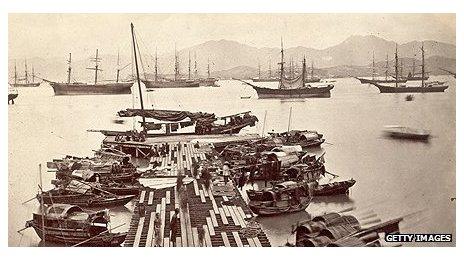
- Published19 January 2017
